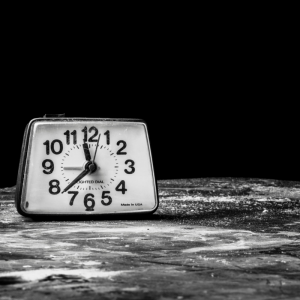Read more from Dr. Primas here – www.travelmd.com
It is often said “Youth is wasted on the young”. A notable quote, however, I believe that opportunities for personal growth and continuous improvement can happen at any age and not be wasted, missed opportunities. In my practice, I encounter many men of all ages with low testosterone and its consequences in virtually every age group (including fertility issues in younger men, yes, it’s not always a woman’s issue) after the teens. Low testosterone occurs for many different reasons but has some common threads. Once medical conditions (prolactin secreting tumors, hypogonadism, sleep apnea etc.) and medications are excluded, the overwhelming majority of “low T’ are lifestyle issues. Testosterone production is a complex interaction involving the pituitary gland and testes, with many disruptors of this pathway. In both young, middle age and older men, lower testosterone levels are linked to many lifestyle issues including being overweight, deconditioning, sleep deprivation and poor nutrition and the accompanying deficiencies that go along with it.
 In this blog, I’d like to address one of the more common lifestyle issues that affect men: poor quality sleep. Whether it is a younger man whose sleep disturbance is from stress, sleep apnea or “burning the candle at both ends” or an older man with sleep deprivation from getting up at night to go to the bathroom because of prostate issues or age related gradual decrease in sleep time, the end result is the same: lower testosterone production. Lower testosterone production can cause all of the following: decreased libido, low energy, depression, less strength, low endurance, lower and poorer quality sperm, erectile dysfunction and a larger gut. Many of these symptoms may also be a reflection of poor sleep in itself, so it’s a vicious cycle. Testosterone is secreted in a pulsed fashion with higher levels being produced during REM sleep. Diminished REM sleep has been associated with many ailments as well as a lower testosterone level. Disturbed REM sleep affects luteinizing hormone (LH) and growth hormone secretion which in turn alter testosterone levels. Testosterone levels peak at the onset of REM sleep and stay elevated until awakening (thus the “early morning erection”). So, poor sleep hygiene and lack of quality REM sleep clearly affects testosterone levels.
In this blog, I’d like to address one of the more common lifestyle issues that affect men: poor quality sleep. Whether it is a younger man whose sleep disturbance is from stress, sleep apnea or “burning the candle at both ends” or an older man with sleep deprivation from getting up at night to go to the bathroom because of prostate issues or age related gradual decrease in sleep time, the end result is the same: lower testosterone production. Lower testosterone production can cause all of the following: decreased libido, low energy, depression, less strength, low endurance, lower and poorer quality sperm, erectile dysfunction and a larger gut. Many of these symptoms may also be a reflection of poor sleep in itself, so it’s a vicious cycle. Testosterone is secreted in a pulsed fashion with higher levels being produced during REM sleep. Diminished REM sleep has been associated with many ailments as well as a lower testosterone level. Disturbed REM sleep affects luteinizing hormone (LH) and growth hormone secretion which in turn alter testosterone levels. Testosterone levels peak at the onset of REM sleep and stay elevated until awakening (thus the “early morning erection”). So, poor sleep hygiene and lack of quality REM sleep clearly affects testosterone levels.
While in the literature, there is conflicting evidence that there is an association between sleep and testosterone levels, I have treated many men and have clinically seen improvements in testosterone levels after correcting sleep imbalances. Using a virtual sleep coach (occasionally referring for a full sleep analysis) in conjunction with a sleep tracking device and app, we were able to give feedback and teach men proper sleep hygiene ultimately reflecting in higher testosterone levels. Patients are urged to not use electronic devices before bedtime or use an app that alters the color of their computer’s display to adapt to the time of day. They are urged to “turn in” early and try not to use an alarm to awaken or get a sleep cycle alarm app that gently awakens them when it is physiologically best. Use of blackout curtains, shades or window retrofits and keeping the room temperature at an optimal sleeping temperature of 65F (18C) and 72 F (22C) will also dramatically improve sleep quality. In addition to our findings, numerous anecdotal reports by bodybuilders and professional athletes support the evidence that good sleep increases testosterone.
In conclusion, ALL men benefit from having normal testosterone levels. Normal testosterone levels are associated with an elevated mood, competitive advantage, improved body composition (less fat, more lean muscle), improved endurance, stronger bones, better libido, sexual performance and fertility and lastly a decreased all-cause mortality and longer lifespan compared to others with an age adjusted lower testosterone level.
I have helped many men regain their youthful vigor and robust health using what I like to call the “Primas Primal Protocol”. It is a non-testosterone replacement (testosterone only prescribed in extreme cases) individually tailored program based on ancestral health using a mostly plant based paleo style eating and simple exercise program (supervised by our personal health coach), sleep coaching, stress reduction program (including qigong, which can augment testosterone production on its own) as well as a few simple supplements, online tools/apps and on body quantitative feedback devices. I have found that this comprehensive plan is simple and beneficial to most men to maintain youthful vigor.
References:
https://jama.jamanetwork.com/article.aspx?articleid=1029127
https://www.ncbi.nlm.nih.gov/pmc/articles/PMC2453053/
https://www.ncbi.nlm.nih.gov/pmc/articles/PMC3955336/
https://www.ncbi.nlm.nih.gov/pubmed/8126142




Great post, I think many men underestimate the power of sleep in helping increase T levels. Cheers Dr. Primas!
My husband thought he was doing everything right. Didn’t wake up at night, ate right, etc. but turned out he had sleep apnea and didn’t know it. Good point
I knew sleep was important but I did not know it’s direct affects on T levels. I have to make sure i get by 7-8 hours of sleep in every night
Many people do not understand the importance of sleep. Without sleep, the body does not regenerate the vitality it needs to get through the day. Muscles are rebuilt, pathogens are fought, and testosterone is released. As the article says, losing sleep is like doubling down on the bad effects. Without sleep, for example, testosterone is not produced to help muscles rebuild, on top of the fact that a lack of sleep in and of itself prevents muscle growth. Like diet and exercise, good sleeping habits take time to develop, but are a necessary part of a healthy lifestyle.
Excellent and informative piece! As a rising senior in college, and as anyone living the college lifestyle can affirm, sleep is neglected to say the least. Whether it be because of academics, extracurricular activities, parties, or binge-watching Netflix, it is a serious problem and it would not surprise me at all to find that a high percentage of men in college suffer from low T levels.
Great post by Dr. Ronald A. Primas. The reason why I think its great is that I have been writing my blog on testosterone for nearly 3 years now…alot of what he says i.e sleep depravation is soemthing i’ve looked at in great depth.